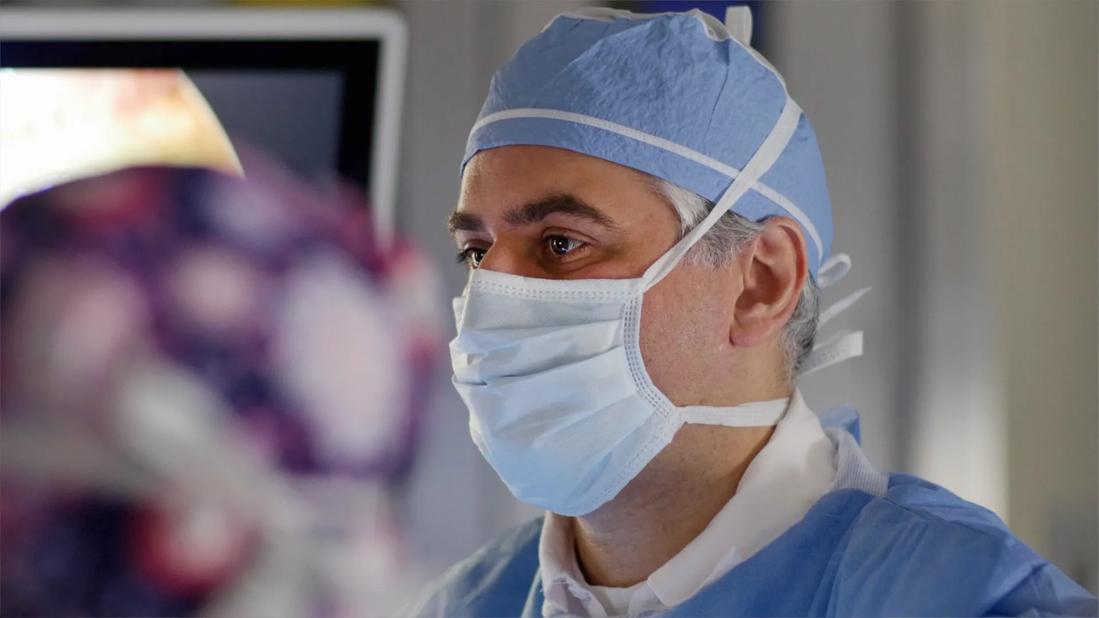Surgical intervention linked to increased lifespan and reduced complications

Image content: This image is available to view online.
View image online (https://assets.clevelandclinic.org/transform/a9108226-7a27-49d9-bad6-cc92fe10d850/Aminian-Surgery-barra)
Dr. Aminian close-up
A large Cleveland Clinic study has found that people with obesity and Type 2 diabetes who undergo weight-loss surgery live longer and face fewer serious health problems compared with those treated with GLP-1 receptor agonist medicines alone.
Advertisement
Cleveland Clinic is a non-profit academic medical center. Advertising on our site helps support our mission. We do not endorse non-Cleveland Clinic products or services. Policy
The research, which appears in Nature Medicine, found that patients who had bariatric or metabolic surgery lost more weight, achieved better blood sugar control and relied less on diabetes and heart medications over 10 years.
“Even with today’s best medicines, metabolic surgery offers unique and lasting benefits for people with obesity and diabetes,” says Ali Aminian, M.D., director of Cleveland Clinic’s Bariatric & Metabolic Institute and primary investigator of the study. “The benefits we observed went beyond weight loss. Surgery was linked to fewer heart problems, less kidney disease and even lower rates of diabetes-related eye damage.”
The M6 study (Macrovascular and Microvascular Morbidity and Mortality after Metabolic Surgery versus Medicines) followed 3,932 adults with diabetes and obesity who received care at Cleveland Clinic for up to 10 years. Among them, 1,657 underwent metabolic surgery (including gastric bypass or sleeve gastrectomy), while 2,275 were treated with GLP-1 medicines (including liraglutide, dulaglutide, exenatide, semaglutide and tirzepatide). The median follow-up for the entire cohort was 5.9 years (interquartile range (IQR) 4.4–7.6 years).
At the end of the study, patients who had metabolic surgery were found to have a:
Advertisement
The 10-year cumulative incidence of all-cause mortality was 9.0% (95% confidence interval (CI) 6.8–10.8%) in the metabolic surgery group and 12.4% (95% CI 9.9–15.2%) in the GLP-1 RA group (adjusted hazard ratio (HR) 0.68 (95% CI 0.48–0.96), P = 0.028).
The 10-year cumulative incidence of MACE was 23.7% (95% CI 20.0–27.6%) in the metabolic surgery group and 34.0% (95% CI 28.1–44.2%) in the GLP-1 RA group (adjusted HR 0.65 (95% CI 0.51–0.82); P < 0.001).
On average, people who had metabolic surgery lost 21.6% of their body weight over 10 years, compared with 6.8% weight loss in people who took GLP-1 medicines. Hemoglobin A1c, a marker of average blood sugar, improved more with surgery (-0.86%) than with GLP-1 medicines (-0.23%). Patients in the surgery group also required fewer prescriptions for diabetes, blood pressure, and cholesterol.

Image content: This image is available to view online.
View image online (https://assets.clevelandclinic.org/transform/98f8760c-2156-4d62-99f9-b95a1824309d/Aminian-figure1)
“Even in the era of these powerful new drugs to treat obesity and diabetes, metabolic surgery may provide additional benefits, including a survival advantage,” says Steven Nissen, M.D., Chief Academic Officer of the Heart, Vascular & Thoracic Institute at Cleveland Clinic and senior author of the study.
“Our findings indicate that surgery should remain an important treatment option for obesity and diabetes,” says Dr. Aminian. “These long-term benefits are harder to achieve with GLP-1 medicines alone, as many patients stop using the medications over time.”
According to the authors, the study has some limitations. It was observational rather than a randomized comparison of drugs and surgery, and it did not focus exclusively on the newest and most effective GLP-1 medicines. The researchers note that future studies should directly compare surgery with newer GLP-1 therapies, such as semaglutide and tirzepatide, to further guide treatment decisions.
Advertisement
Advertisement
Researchers explore how changes in the gut microbiome influence the brain's reward response to alcohol
Retrospective study highlights psychosocial predictors of bariatric surgery outcomes
Comprehensive mental health screening may help prevent postsurgical risks
Consider each patient's unique disease progression and treatment goals when choosing a strategy
Sustained weight loss helps reduce IIH symptoms and medication dependence
Findings could help identify patients at risk for poor outcomes
Findings show greater reduction in CKD progression, kidney failure than GLP-1RAs
An individualized approach to care is still essential